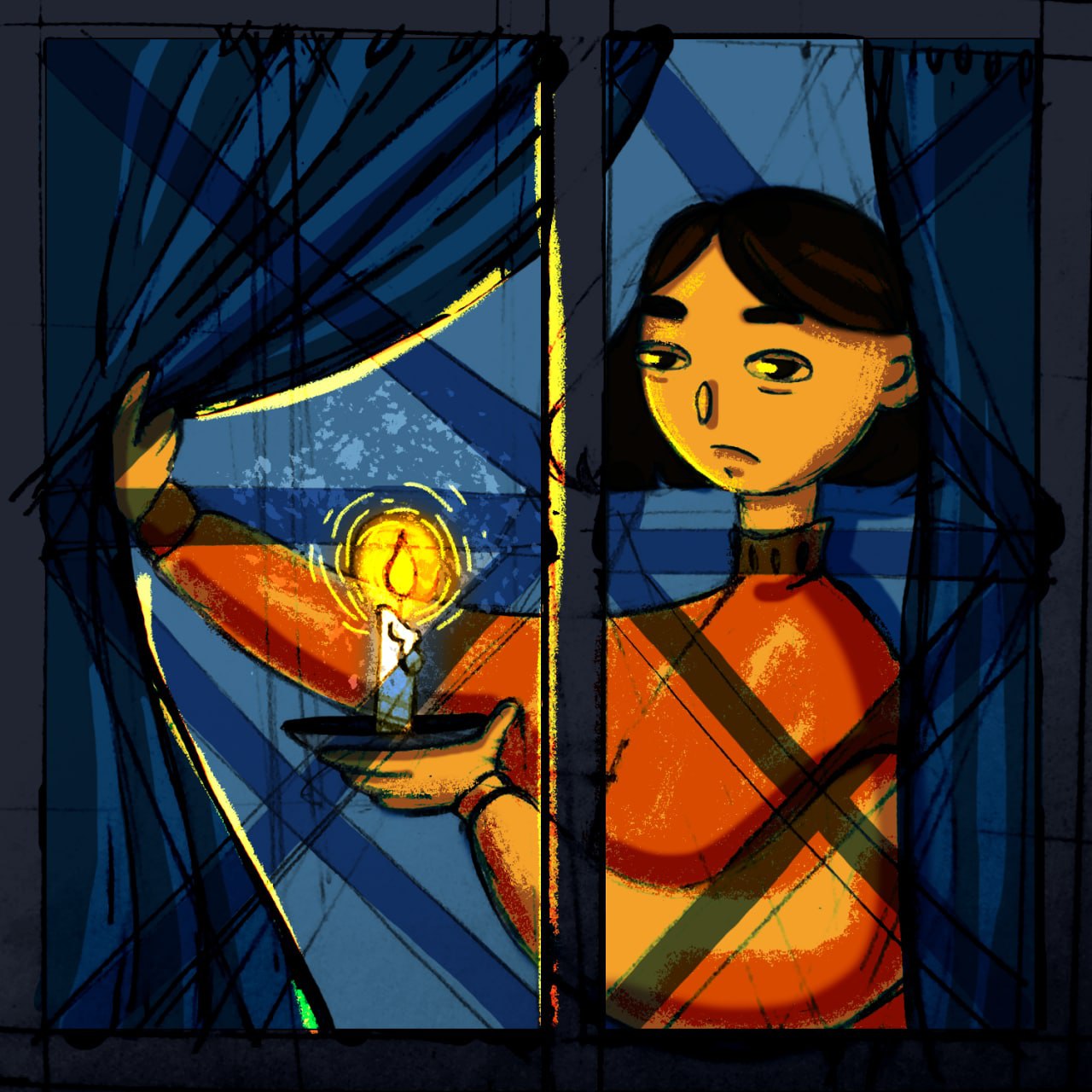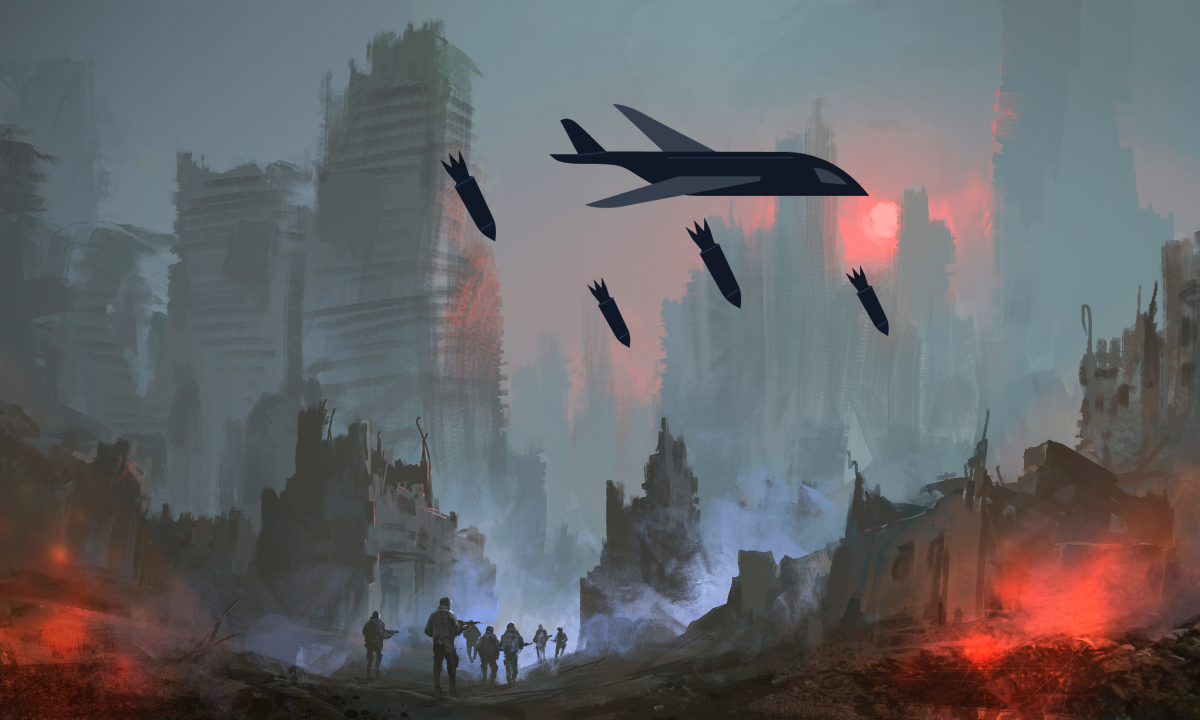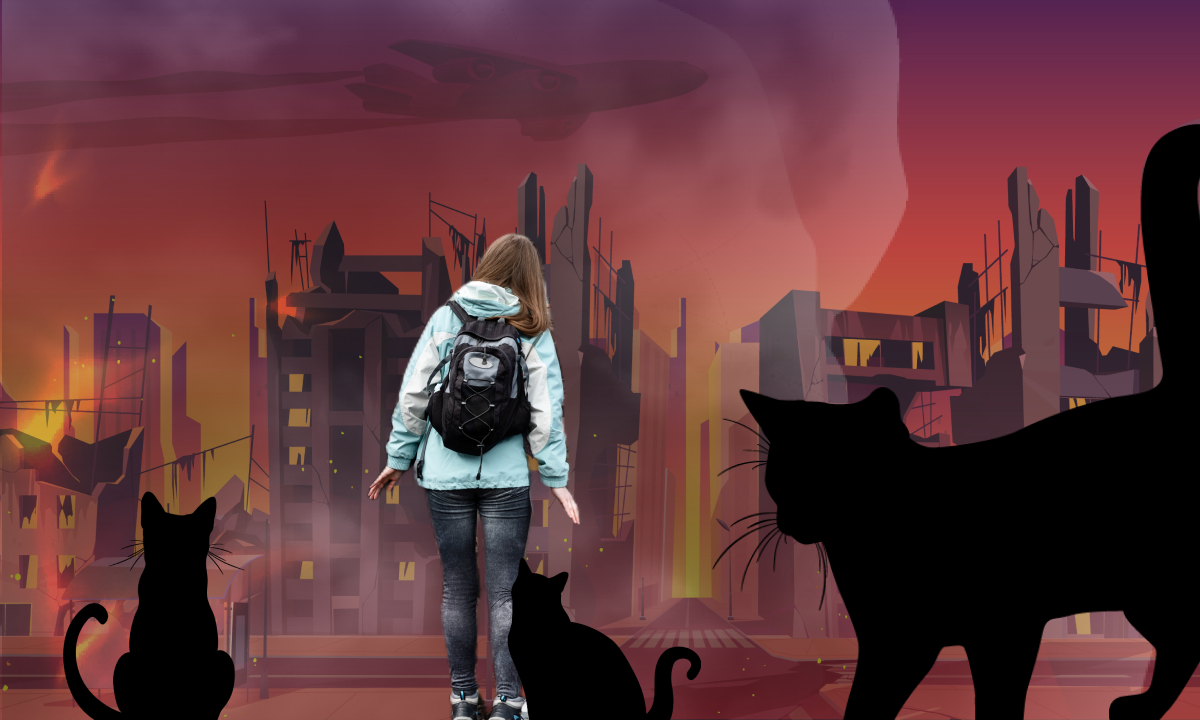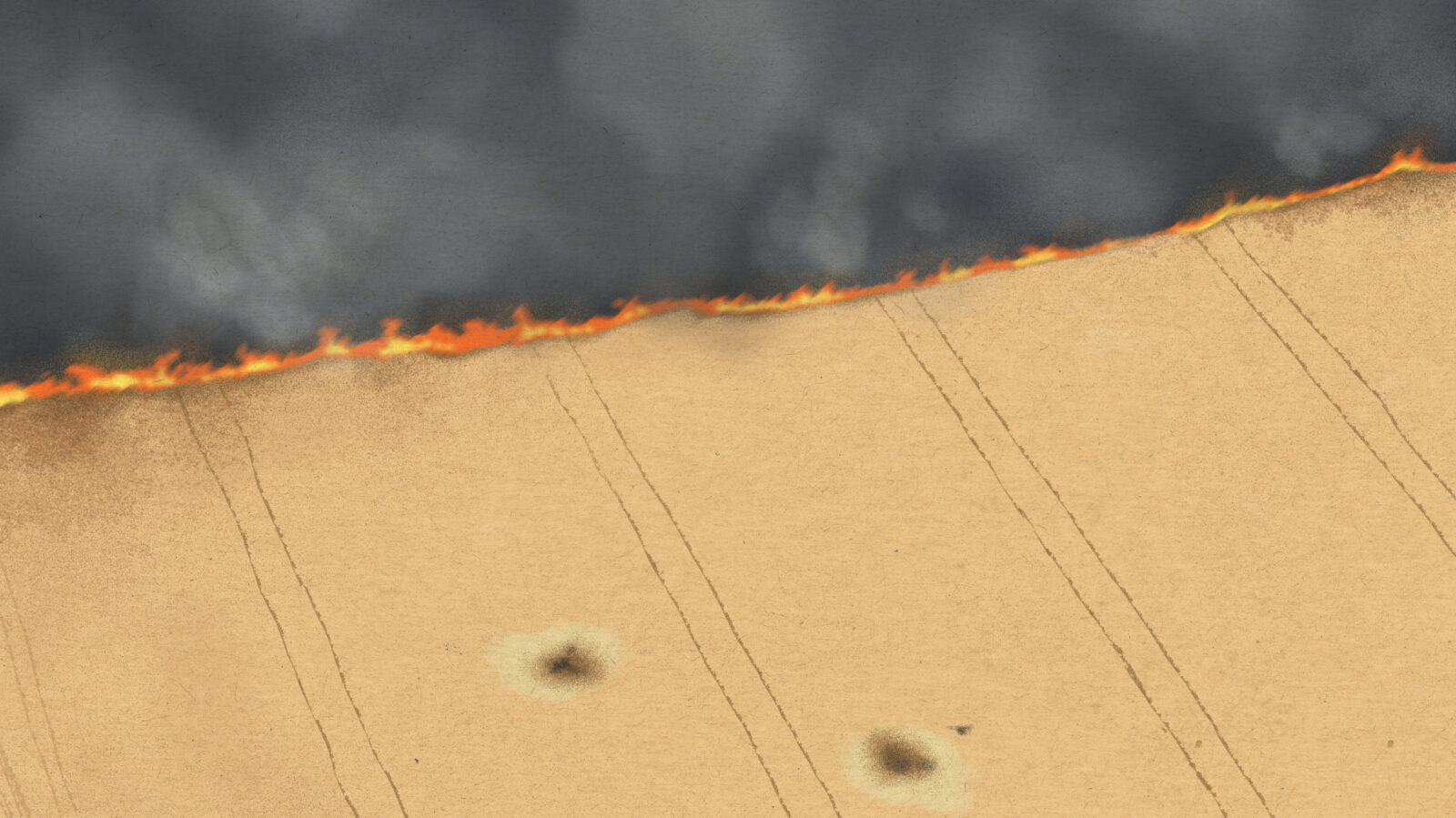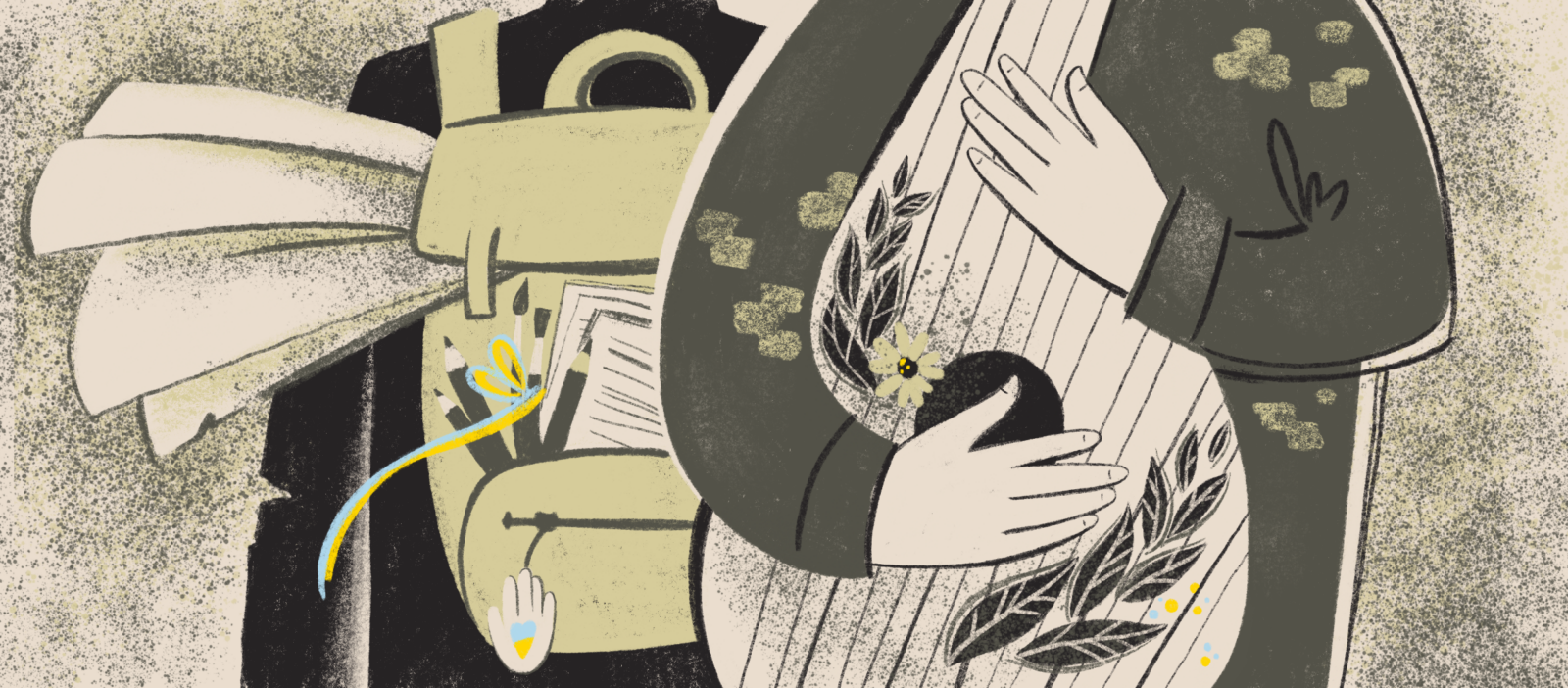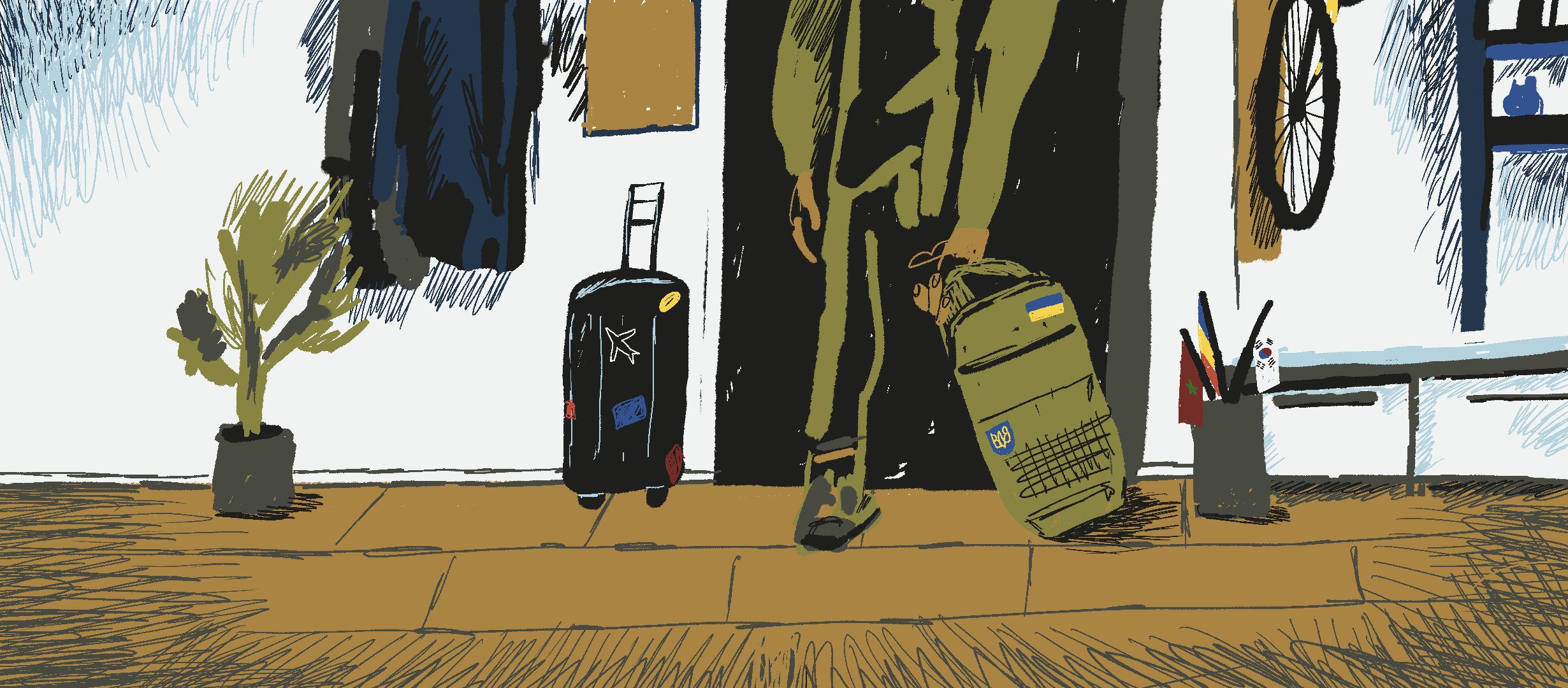Illustrated by Asia Timofeyenkova
“In the first days, there was panic and a lot of tears. Now it looks like a stupor. Although sometimes it is still scary. It is scary when a husband’s number appears on the phone but it is not his voice, but instead, there is a kind of wheezing. Somebody had already been trying to hack his phone. It’s scary when he calls twice an hour and anxiously asks how we are but he can’t say any details about himself. And then I find out that during this time the city was fired upon twice. It is scary when a grenade is found near the entrance,” says Lida. She is 55 years old. All her life she has been teaching children mathematics. She lives in Bila Tserkva. This city has been under missile fire three times since the beginning of the war: the last time residential buildings were shelled very heavily.
Her husband went to the battlefront the day after the beginning of Russia’s full-scale war against Ukraine. Lida’s son is now helping the territorial defence forces. Her daughter works in the United States.
Lida is staying alone in the apartment. At first, when many people left the city it was scary and lonely: only 10 of the 120 apartments in the house were inhabited. Then the people who drove the children to save places began to return.
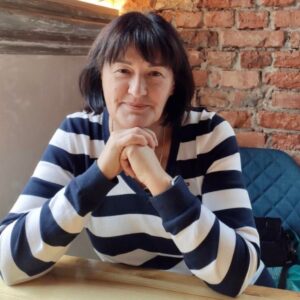
Lida isn’t going anywhere. She sleeps on the mattress in the corridor and covers the windows every night to keep the light out of the street. Her mother-in-law also lives in the city and she is suffering from cancer. It is necessary to take care of her: to prepare food, go to pharmacies, find water. Everything needs to be done quickly because air alarms are heard every hour and sometimes every 30 minutes. Lida knows the addresses of all the basements in which it’s possible to hide. So, the day passes and in the evening everything is repeated in a circle: it’s needed to make a light covering and pull out a mattress into the corridor. At first, Lida slept in the bathroom but then she read that it was safer to do so in the corridor.
The neighbours help Lida. They found out that she is taking care of a sick relative and so they provide help: someone brings potatoes, someone – canned goods. They unite, exchange products, and weave camouflage nets.
Spring vacations are about to end and right away teachers like Lida need to think about how and for whom to resume classes and how to conduct online lessons when half the children are sitting in the basements.
One sixth-grader who had barely learned the multiplication table, now learned to count when an air alarm would start in Bila Tserkva when the exterminator is seen over another city. He calls Lida and warns her. And his predictions are often true.
“My greatest joy is a call from a husband from the battlefront, a message from children and friends. This is what supports me the most”.
“After the war, I will put a candle for everyone who died. For all my pupils who will not return from war. I don’t know how many candles I’ll need. I don’t want to count yet. And then when I cried out all my grief, I’ll go to school, I’ll gather my class for an educational hour, and we’ll talk about a new history that this generation will create. I imagine this moment. And I pray that no desk should be empty”.

